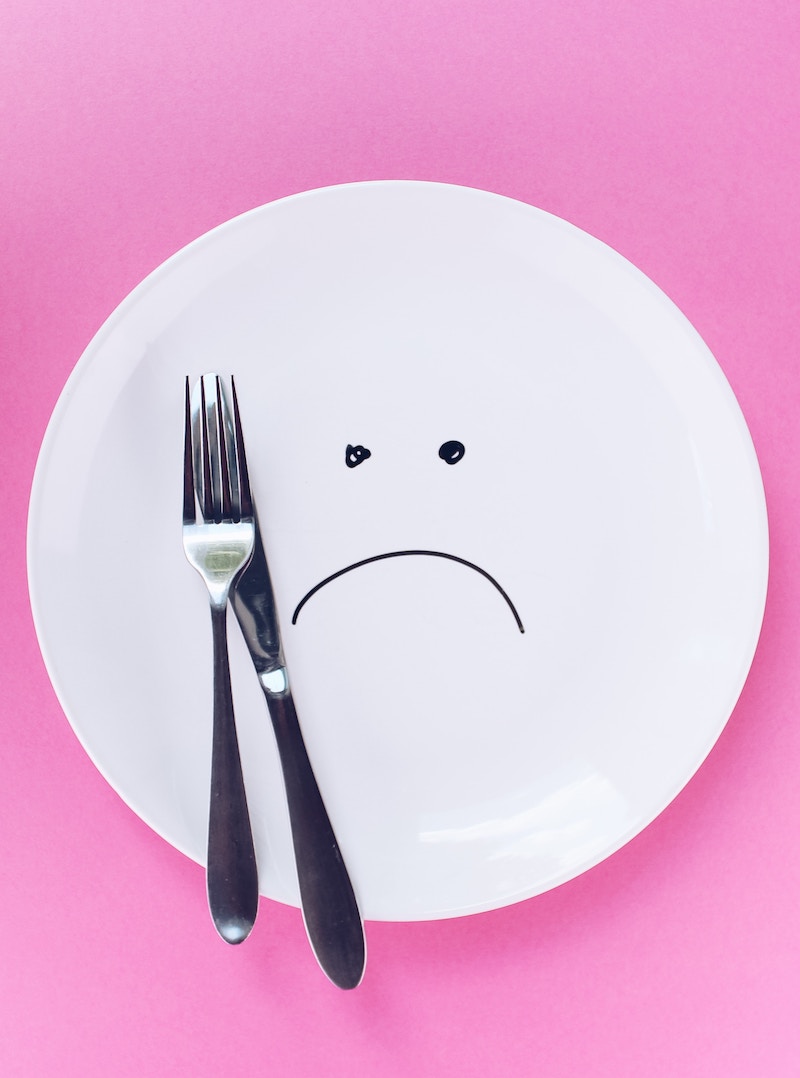The basic mechanics of weight loss seem simple enough: eat less, be more active, and those pounds will just magically drop.
But what if you’re already nailing both of those points – you don’t eat much, and you get plenty of physical activity – but you just can’t seem to lose weight? You may already feel hopeless, thinking why am I gaining weight when I barely eat?
It’s actually a much more common issue than many realize. Despite carefully crafted diet plans, many still struggle to shake off the pounds and, soon after that, fall into the past habits as they lose hope, thinking they’ll never lose weight.
While everyone is different, there are some significant reasons that might be the root of your weight loss issues. If you’re thinking, “I keep gaining weight even though I don’t eat much“, here are the most common reasons why you may not lose weight, even when eating little
You Are Actually Eating More Than You Think
Tracking calories and keeping a food diary is not as easy as it seems. Often, you might not know the exact nutritional values of your food, sometimes you might forget to make an entry about a tiny snack, and sometimes you just might get sick of keeping a food diary since, in a way, it makes your life more complicated.
Most experts agree on one thing: keeping a food diary is immensely important for weight loss. However, even if you try to be accurate, it might not always work that easily – even if you’re using calorie-counting apps such as MyFitnessPal.
Why? Sometimes we might be too lazy to count calories, or sometimes, we don’t know the exact calorie counts.
Let’s say you’re eating out, ordering a simple chicken salad. Can you ever be 100% sure what the exact nutritional value of that salad is? Sure, it might seem a healthy choice, but if the salad is, for example, topped with a dressing, a bit of cheese, or something else, the calories might add up quickly.
Plus, you’ll never know how many grams that chicken in your salad might weigh. Even if you just put down “chicken salad” in your food diary or app, that salad can easily be 300 calories or 600 calories – and you might not really know what’s accurate.
The size and amount of food items can also be misleading and create a false idea of eating less. You might grab 2-3 chocolate chip cookies, thinking that a couple of cookies won’t add much to your overall calorie count, but unknowingly, you might consume 300 calories from those cookies alone.
Even healthy snacks can be misleading when it comes to size. Nuts and dried fruit can be especially misleading due to their size. While nuts are packed with great nutrients, consuming too many can still lead to unwanted weight gain.
For example, just 13-14 cashews contain 100 calories, but let’s be honest – it’s extremely hard to stick to just 13 cashews. Without even realizing it, you might consume 500-600 calories only by eating nuts.
And let’s not forget the trouble with foods that are not very nutrient-dense. Nutrient-dense foods are every Weight Watcher’s best pals as they contain few calories but tons of great nutrients, including vitamins and minerals. Nutrient-dense foods also tend to keep you full longer, so you won’t crave more food.
On the other side of that scale, you’ll find foods with low nutrient density, also known as empty calories – foods high in fats and sugars but low in minerals, vitamins, fiber, or other essential nutrients. Everything from highly processed foods, sugary snacks, and soft drinks to cakes, pastries, and pasta fall under that category. As you won’t be feeling that full, you might overeat or eat too often, leading to a load of unwanted calories.
It may not be about eating less, it may be about eating more of the correct things and eating less of the calorie-dense things.
Your Diet Cheat Days Backlash
Most people allow themselves one cheat day every week – a day when they won’t count calories or allow themselves to indulge in otherwise “forbidden” foods.
However, cheat days might hurt your overall progress more than you thought. If you eat “clean” 6 days a week but consume twice as many calories on your cheat day, your body still needs to burn off that consumed energy, meaning those extra calories you consumed might not go anywhere and instead, they might make themselves comfortable on your body, manifesting as fat.
Cheat days are notorious for the tendency to overeat since mostly, people tend to give themselves slack by rationalizing the cheat day, saying, “It’s okay since I’m otherwise healthy”. Instead of giving you a rewarding treat, cheat days can create an unhealthy relationship with food and even drive you off the track on your regular diet days.
You may end up in a vicious pendulum, swinging from eating “clean” to overdoing during the weekend, never finding a blissful balance.
Instead of having one huge hedonistic food feast on a cheat day, discard the idea of “cheating” completely. A healthy diet is a balanced, long-lasting diet that you actually enjoy. A piece of chocolate now or then or a slice of cake won’t harm you, nor will it make your body go haywire – you don’t need a cheat day for that.
The goal of a diet is to help you create better lifestyle habits, not forbid you or restrain you.
Since cheat days occur usually once per week (or more seldom), you might think you’re not eating much since you might not be eating much during the rest of the week. That one indulgent day makes up for all of that and loads you up with a ton of calories, so the rest of the week you’ll probably work on burning off those calories.
Voila, a devilish circle of zero weight loss is started, and that’s how you end up thinking: why do I gain weight when I eat less.
You’re Too Impatient or Have Set an Unrealistic Weight Goal
Patience is a virtue, but it’s especially essential for those wishing to lose weight.
When we start a new diet, we often rush with the results and expect to see a drastic change after a week or two of dieting. Unfortunately, things don’t happen that fast, especially as we get older.
Let’s say you’ve followed a new diet for a month but haven’t lost more than 2 pounds. That might discourage you and make you think your diet is simply not working since you expected to drop 10 pounds.
In reality, that’s a completely normal weight loss. Lauren Slayton, M.S., R.D., and the author of The Little Book of Thin says that “If you want to lose weight and keep it off, you want to do it more in the one to two pounds per week range.” Weight loss depends on many factors, including the level of physical activity, and the first weight loss might be mostly water weight.
Even if you’re physically active, your weight might not change significantly as you might gain muscle, hence your weight might even increase, though you’re actually slimming down.
Have patience, and don’t expect to see instant results. Weight loss can be a slow process, so don’t strain yourself with too high expectations. Even if you’re following your diet perfectly, weight loss can take time – a lot more time than you imagined.
Your Metabolism Might Be Slow (But Not to Blame)
As Dr. Chih-Hao Lee, professor of genetics and complex diseases at Harvard’s T.H. Chan School of Public Health explains, “People might have fast, slow, or average metabolism, regardless of their body size and composition.” A slower metabolism won’t burn so many calories, which is why the calories will be stored as fat, and hence, you’ll have trouble with losing weight, even if you’re consuming fewer calories and seemingly, aren’t eating much.
However, slow metabolism isn’t really to blame since you can actually do a fair amount to boost your metabolism. As Dr. Lee stressed, the main factors of slow metabolism are a bad diet and low levels of physical activity. By becoming more active than usual and opting for healthier dietary choices, you might speed up your metabolism quite efficiently. Remember – eating little isn’t as important as eating nutrient-dense food.
Dr. Lee also suggests eating more protein, which takes longer to burn and absorb, thus it keeps your metabolism more active.
Even a simple green tea might help – one 2011 study found that drinking about 3 cups of green tea daily might help your metabolism burn an extra 100 calories.
So what to do if you think you’re eating less but gaining weight? As weird as it sounds, eating more might actually be more helpful for weight loss. Everything depends on what you eat: there’s a big difference between consuming 1800 calories in fresh veggies, fruits, dairy products, meat, and whole grains and consuming 1800 calories in pizza or cakes.
If you haven’t done it yet, keep a food diary to better understand what you’re actually consuming, and try to consume more nutrient-dense foods. Beyond that, increase your physical activities to boost the calorie burn even further and make sure you get enough sleep every day.
Keep making good, healthy choices and be patient – results might not come in a month or even three months, but they will come.








